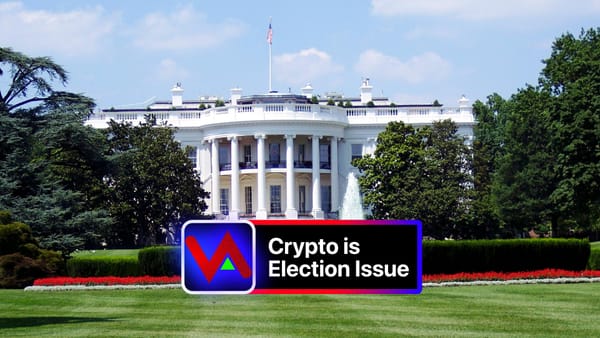
Crypto Takes Center Stage in US Election
Over the past week, there have been several significant developments related to cryptocurrency regulation in the United States. Lawmakers, regulators, and industry participants have been actively engaged in discussions and actions that could shape the future of the virtual asset space. And for the first time, crypto regulation is becoming a key issue in the 2024 presidential election.
Legislative Developments
On May 10, the House Committee on Rules announced it will consider the Financial Innovation and Technology for the 21st Century (FIT21) Act, setting the stage for the bill to potentially go to a floor vote later this month. Introduced in July 2023, FIT21 seeks to provide regulatory clarity by establishing federal requirements for virtual assets, granting the Commodity Futures Trading Commission (CFTC) new jurisdiction over virtual commodities, and clarifying the Securities and Exchange Commission's (SEC) jurisdiction over virtual assets offered as part of an investment contract.
The crypto industry has rallied behind the bill as it heads toward a possible vote. Through the Crypto Council for Innovation, a coalition of over 50 virtual asset organizations and companies wrote a letter to House leaders advocating for the bill's passage, arguing it is "crucial for the U.S. to maintain its leadership in financial innovation." However, key Senate Democrats appear unprepared to match the House's effort on comprehensive crypto legislation at this time.
US Regulatory Actions
On May 16, the Senate voted 60-38 to overturn the SEC's controversial Staff Accounting Bulletin No. 121 (SAB 121). Issued in 2022, SAB 121 requires companies holding customers' crypto assets to record them as liabilities on their own balance sheets, which could have significant capital implications for banks working with crypto clients.
A dozen Senate Democrats joined Republicans in voting to repeal SAB 121, despite the White House warning that doing so could constrain the SEC's ability to protect investors and address issues in crypto markets. However, President Biden has vowed to veto the resolution, and the Senate vote fell short of the two-thirds majority needed to override a veto.
The vote reflected an ongoing debate over the SEC's approach to crypto regulation. SEC Chair Gary Gensler has argued that most crypto tokens are securities and crypto firms must register with the SEC. But the industry has criticized the SEC for "regulation by enforcement" rather than engaging in formal rulemaking to guide the sector.
In a ruling on May 16 allowing the SEC's case against Coinbase to proceed, a federal judge largely endorsed the SEC's enforcement-focused approach. The judge said the SEC is engaging in a "fact-intensive application of an existing standard" to crypto rather than making new policy, and that its enforcement actions put Coinbase on notice that it too could be sued. The ruling was seen as a setback for crypto firms' arguments that the SEC is overstepping its authority.
Industry Perspectives in the US
Tensions between the industry and regulators were evident in comments by Uniswap CEO Hayden Adams, who warned there was "not much time" for President Biden to change crypto-focused voters' negative perception of his administration's policies before the November election. Adams accused the administration of allowing "total war" on crypto led by the SEC and Senator Elizabeth Warren.
Trump vs. Biden: Crypto's Role in the 2024 Election
Former President Donald Trump, who is running for re-election against Biden, has recently adopted a more conciliatory stance toward crypto compared to his previous skepticism. However, crypto insiders are divided on whether a second Trump term or a Biden re-election would be more beneficial for the industry. What is clear is that crypto is becoming a key issue in the 2024 election.
The next election could have significant implications for crypto regulation, with the outcome likely to shape the direction of policy on virtual assets for years to come. This has led to increased lobbying efforts by the industry, with crypto firms and trade groups spending to influence lawmakers and regulators.
Looking Ahead
The crypto industry's influence on elections appears to be growing, with lobbying efforts already shaping some key Congressional races. A more crypto-friendly Congress could potentially push through legislation like FIT21 to finally establish clearer rules for the sector. But the path forward remains uncertain as virtual assets continue to be a partisan lightning rod.
The week's developments underscore that crypto regulation in the U.S. is at an inflection point, with intensifying debates over how to balance fostering innovation, protecting consumers, and integrating virtual assets into the existing financial system. As Congress, regulators, and the courts all grapple with these complex issues, the coming months could prove the most important in shaping the long-term future of crypto in America.